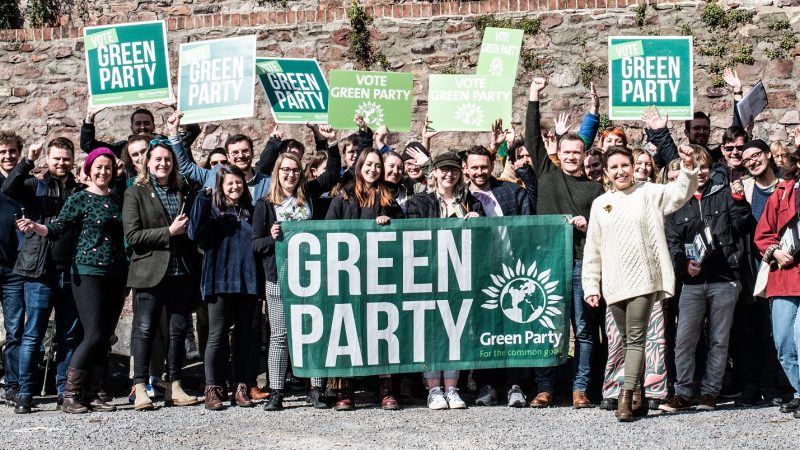Molly Scott Cato explains the Green Party's economic policies

Time and again during this election campaign, under a barrage of scepticism about our spending plans, the Green Party’s leaders have responded that this election is about what kind of society we want to live in. As bastions of the neoliberal establishment—like the Institute for Fiscal Studies and Nick Robinson—have poured scorn on our suggestion that the rich could pay more tax, we have focused strongly on the need to use the powers of government to make everybody’s life better by investing in public services and preparing our society, as well as our economy, for the climate crisis.
The focus of our manifesto is investment. There shouldn’t be anything terribly controversial about this since everybody from the London School of Economics to the Financial Times is clear that our current economic woes have their roots in a failure of investment. It simply isn’t possible to have a flourishing economy or society if you’re in the doom loop of austerity, poorly-paid jobs, low tax yields, leading to further cuts, and the ongoing vicious spiral we are experiencing as broken public services and ‘the cost of living crisis’.
We have a different vision for the country: a vision of a government deeply involved in the economy rather than leaving the power of corporations and the super-rich unchallenged. There is nothing particularly radical about such a vision. Our fiscal policies would have seemed mainstream in the UK pre-Thatcher or in most modern European countries. We are proposing raising the ratio of tax to GDP to 43% from 37%. This will put us more in line with other European countries such as Sweden, where the percentage is 43%, or France, where it is 45%.
An obvious priority for investment is our public services, broken by 14 years of Tory austerity. But we are also clear that investment in climate resilience now will save us money in the long run. Again, there is nothing radical here; in fact, we are more aligned with the Office for Budget Responsibility than the other parties. OBR modelling on the fiscal risks from climate change show that our plans are quite similar to their ‘early action scenario’. They conclude that this approach to tackling climate change will lead to less debt and a stronger economy than delaying action. So we are proposing what the OBR recommends as fiscally prudent.
It is also the sort of country that most UK voters would like to live in. Polling by Yougov found that our wealth tax proposal, welcomed by Arun Advani of the University of Warwick as ‘economically credible’, is supported by 71% of voters, while our proposal to remove the NI loophole for high earners is supported by 56%. Our proposal to increase the minimum wage to £15 is even more popular, being supported by 76% of voters.
We are also proposing to reverse the decades of privatisation that have resulted in the scandal of filthy rivers and profiteering from a range of public services, even health and education. Given the disastrous consequences of this failed experiment, it is unsurprising that the public is with us here as well, with support for public ownership ranging from 84% for the NHS, 81% for education, to 69% for water and 67% for the railway.
By contrast, Labour have not even bothered to produce a costed manifesto, choosing instead to shuffle small sums from here to there. It is sad to see them fearful of defending their proud legacy of standing up for working people and building strong public services for us all. Instead they are seeking to conceal the cuts to services that their timid manifesto makes inevitable. No wonder the Independent newspaper concluded that ‘The two main parties would do well to follow more of the Greens’ example – not only in their clarity about the climate crisis, but also their fiscal frankness.’
The Green Party has taken up the mantle of using political power to make the economy fairer—and greener. We need a strong group of Green MPs in the next Parliament to maintain pressure on the Labour government to be bolder and to keep fairness on their agenda, as well as being ambitious on the climate and nature emergencies. This Green vision of a flourishing economy and an inclusive society is what offers voters real hope on 4th July.
Molly Scott Cato is the Green Party’s finance and economy spokesperson
Image credit: Matthew Philip Long – Creative Commons
To reach hundreds of thousands of new readers and to make the biggest impact we can in the next general election, we need to grow our donor base substantially.
That's why in 2024, we are seeking to generate 150 additional regular donors to support Left Foot Forward's work.
We still need another 124 people to donate to hit the target. You can help. Donate today.



